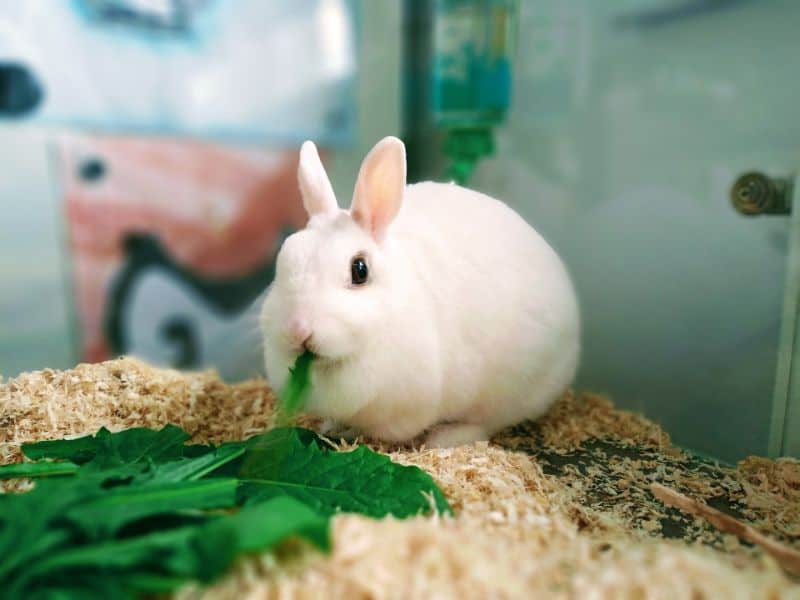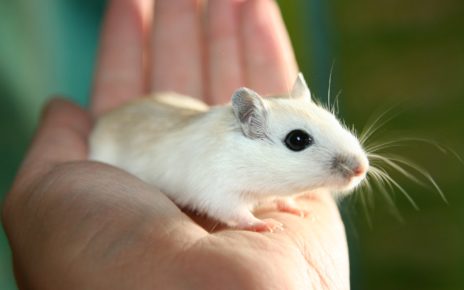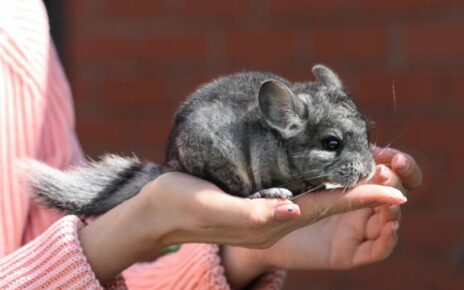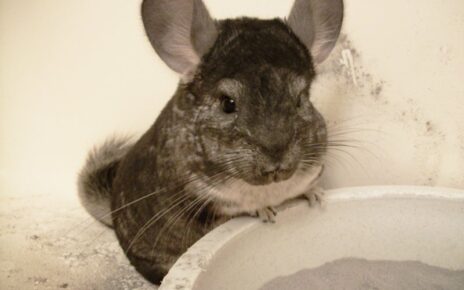The following list of low calcium vegetables for rabbits will help you select the healthiest and best veggies for rabbits.
If a rabbit eats vegetables with too much calcium it can lead to the formation of bladder or kidney stones, which can be extremely painful for a rabbit, and if they get too large they might even require medical attention.
That’s why it’s a good idea to feed your rabbit low calcium vegetables to minimize the risk of any potential health problems.
How Much Calcium Should a Rabbit Have A Day
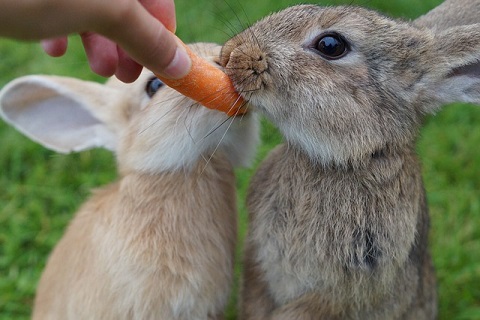
The recommended amount of calcium an adult rabbit needs a day is 90mg per pound of body weight (200mg per 1kg ). This means an average 5 to 8-pound rabbit will need 450 to 720mg of calcium every day.
Rabbit Calcium per Day
- Weight: 5 to 8 Pounds (2,265g – 3,624g)
- Calcium: 450 to 720mg
Rabbit Calcium Absorption
A rabbit will retain more calcium when there is enough phosphorus in its diet. Calcium that isn’t absorbed will end up passing through your rabbit’s kidneys and bladder. And even if you feed your rabbit low calcium vegetables they can still develop bladder stones if they don’t get the right amount of phosphorus from their food.
In the following section, we’ll go over the ideal rabbit calcium-phosphorus ratio in more detail, so you can choose the best low calcium veggies for your rabbit while also taking into account their phosphorus content.
Rabbit Calcium: Phosphorus Ratio
The ideal calcium to phosphorus ratio for rabbits is 1.5-2 parts calcium to 1 part phosphorus. That means a rabbit should consume 1.5 times more calcium in their diet relative to phosphorus.
You can calculate the amount of calcium and phosphorus your rabbit eats by weighing all their food and adding up the total calcium and phosphorus content.
Alternatively, you can feed your rabbit foods that have an optimal calcium to phosphorus ratio if you want to ensure your rabbit is eating a nutritionally balanced diet.
Low Calcium Vegetables for Rabbits
Beets
Beets are a low calcium root vegetable that rabbits can eat. A 100-gram serving of Beets contains 16mg of calcium, 40mg of phosphorus, and 23mg of magnesium. Their 0.4:1 Ca:P ratio is lower than the recommended 1.5:1 0.4:1 Ca:P ratio. However, their 2.8% dietary fiber content makes Beets a good source of roughage for rabbits. Plus, beets are a good source of vitamins A, C, and K, as well as folic acid and minerals such as iron and manganese.
Cucumber
Cucumbers are a crunchy low calcium vegetable that can be a good treat for rabbits. A 100-gram serving of cucumber contains 16mg of calcium, 24mg of phosphorus, and 13mg of magnesium. This gives cucumbers a Ca:P ratio of 0.66:1 which is on the low side for rabbits. However, cucumbers can still be a refreshing and hydrating snack for a rabbit since they are low in sugar and calories.
Belgian Endive – Witloof Chicory
Belgian Endive is a low calcium vegetable that is healthy for a rabbit’s digestive system. A 100-gram serving of Belgian Endive contains 19mg of calcium, 26mg of phosphorus, and 10mg of magnesium, and Belgian Endive has a Ca:P ratio of 0.73:1. Belgian Endive is also a good source of roughage for rabbits since it has a 3.1% dietary fiber content.
Asparagus
Asparagus is a low-calcium vegetable that is rich in nutrients and fiber. A 100-gram serving of asparagus contains 24mg of calcium, 52mg of phosphorus, and 14mg of magnesium, and asparagus has a Ca:P ratio of 0.46:1. Asparagus is also a good source of dietary fiber, with a dietary fiber content of 2.1%.
Cauliflower
Cauliflower is a low calcium vegetable that is often fed to rabbits. A 100-gram serving of cauliflower contains 22mg of calcium, 44mg of phosphorus, and 15mg of magnesium, and cauliflower has a Ca:P ratio of 0.41:1. Cauliflower is also a good source of fiber, with a dietary fiber content of 2.5%. Just remember when feeding cauliflower to your rabbit, it is important to make sure that they eat the entire plant, as the leaves are an important source of vitamins and minerals.
Kohlrabi
Kohlrabi is a low calcium vegetable that is high in dietary fiber. A 100-gram serving of Kohlrabi contains 24mg of calcium, 46mg of phosphorus, and 19mg of magnesium, and Kohlrabi has a Ca:P ratio of 0.52:1. Kohlrabi is an excellent source of vitamins C, B6, and potassium. When feeding Kohlrabi to rabbits, it is important to remove the leaves and stems because they contain high levels of oxalates which can bind with calcium and lead to kidney stones.
Turnip
Turnips are low calcium root vegetables that are healthy for rabbits to eat. A 100-gram serving of turnips contains 30mg of calcium, 27mg of phosphorus, and 11mg of magnesium. Turnips have a Ca:P ratio of 1.11:1, making them a good choice for rabbits who need to maintain a balanced calcium and phosphorus intake. In addition, turnips are also a good source of fiber, with a dietary fiber content of 1.8%.
Squash – Winter
Winter squash is an excellent low calcium vitamin-rich fruit/vegetable for rabbits. A 100-gram serving of winter squash contains only 32mg of calcium, and winter squash has a Ca:P ratio of 1.23:1, which is close to the ideal calcium to phosphorus ratio for rabbits. Winter squash is also an excellent source of beta carotene and dietary fiber, and it is a good source of magnesium.
Carrots, Baby
Baby carrots are a low calcium root vegetable that rabbits absolutely love. A 100-gram serving of baby carrots contains 32mg of calcium, 28mg of phosphorus, and 10mg of magnesium. This gives them a very good Ca:P ratio of 1.15:1. Baby carrots also have a 2.9% dietary fiber content which is beneficial for rabbits’ digestive system.
Alfalfa Sprouts
Alfalfa sprouts are a low calcium vegetable that is easy to grow at home. A 100-gram serving of alfalfa sprouts contains 32mg of calcium, 70mg of phosphorus, and 27mg of magnesium, and alfalfa sprouts have a Ca:P ratio of 0.45:1, and they are a decent source of roughage since they contain 1.9% dietary fiber. Alfalfa sprouts can be fed fresh or dried and can be mixed with other vegetables to create a healthy and balanced diet for your rabbit.
Lettuce, Butterhead
Butterhead lettuce is a low calcium leafy green that you can feed to rabbits. A 100 gram serving of butterhead lettuce contains 36mg of calcium, 33mg of phosphorus, and 13mg of magnesium, which gives butterhead lettuce a nearly ideal Ca:P ratio of 1.09:1
Parsnips
Parsnips are a low calcium root vegetable that make a good treat for rabbits. A 100-gram serving of Parsnips contains 36mg of calcium, 71mg of phosphorus, and 29mg of magnesium. This results in a Ca:P ratio of 0.5:1, which is on the low side for rabbits. However, parsnips are high in dietary fiber, with a 4.9% dietary fiber content that will keep a rabbits’ digestive system healthy, so they still make a good addition to any rabbit’s diet and they are sure to please even the pickiest eaters.
Green Beans
Green Beans are a crunchy low calcium vegetable that can be fed to rabbits as a treat. A 100-gram serving contains 37mg of calcium, 38mg of phosphorus, and 25mg of magnesium, and they have a Ca:P ratio of 0.97:1. Green beans are also an excellent source of dietary fiber (3.4%), and they are a good source of manganese and potassium.
Sweet Potato Leaves
Sweet potatoes are a popular root vegetable, but did you know that their leaves are also edible? A 100-gram serving of sweet potato leaves contains 37mg of calcium, 94mg of phosphorus, and 31mg of magnesium. This gives them a Ca:P ratio of 0.39:1, which is on the low side for rabbits. However, sweet potato leaves are also a good source of dietary fiber (2%). So if you’re looking to mix up your rabbit’s diet, consider feeding them sweet potato leaves.
Celery
Celery is a crisp low calcium vegetable with a high moisture content. Each 100-gram serving of Celery contains 40mg of calcium, 24mg of phosphorus, and 11mg of magnesium. The Ca:P ratio of Celery is 1.66:1, which makes it a perfect low calcium treat for rabbits.
Cabbage
Cabbage is a low calcium leafy green that is packed with nutrients. A 100-gram serving of cabbage contains 40mg of calcium, 26mg of phosphorus, and 12mg of magnesium. That gives cabbage a Ca:P ratio of 1.54:1, which is right in the ideal range for rabbits.
Broccoli
Broccoli is a low calcium cruciferous vegetable that is packed with nutrients. A 100-gram serving of Broccoli contains 47mg of calcium, 66mg of phosphorus, and 21mg of magnesium which gives Broccoli a Ca:P ratio of 0.7:1. Broccoli also has a high dietary fiber content of 2.6%.
Swiss Chard
Swiss Chard is a colorful leafy green that rabbits love to eat. A 100-gram serving of Swiss Chard contains 51mg of calcium, 46mg of phosphorus, and 81mg of magnesium, In addition, the Ca:P ratio of Swiss Chard is 1.11:1, which makes it a good choice for rabbits.
Purslane
Purslane is a healthy succulent that can be fed to rabbits. A 100-gram serving of Purslane contains 65mg of calcium, 44mg of phosphorus, and 68mg of magnesium. Purslane has a Ca:P ratio of 1.47:1, making it a good option for rabbits who need to maintain a healthy calcium to phosphorus ratio. Purslane is also a good source of magnesium, which is essential for bone health. In addition, Purslane is a low-calorie vegetable, making it a good option for rabbits who need to watch their weight. 🙂
Cilantro
Cilantro is a good low-calcium herb for rabbits. A 100-gram serving of Cilantro contains 67mg of calcium, 48mg of phosphorus, and 26mg of magnesium. Cilantro also has a very good Ca:P ratio of 1.4:1, and it is a good source of roughage since it contains 2.8% dietary fiber.
Low Calcium Vegetables for Rabbits Chart
Vegetables | CALCIUM per 100 grams |
Corn, White | 2 mg |
Tomato | 5 mg |
Peppers,Red | 9 mg |
Peppers,Green | 9 mg |
Cucumber (with skin) | 14 mg |
Beets | 16 mg |
Endive, Belgian (Witloof Chicory) | 19 mg |
Squash (summer, all varieties) | 20 mg |
Asparagus | 21 mg |
Pumpkin | 21 mg |
Sweet Potato | 22 mg |
Cauliflower | 22 mg |
Carrots, Baby | 23 mg |
Kohlrabi | 24 mg |
Carrots | 27 mg |
Turnip | 30 mg |
Winter Squash | 31 mg |
Lettuce, Butterhead (Boston, Bibb) | 32 mg |
Alfalfa Sprouts | 32 mg |
Lettuce, Romaine | 36 mg |
Parsnips | 36 mg |
Sweet Potato Leaves | 37 mg |
Green Beans | 37 mg |
Celery | 40 mg |
Brussels Sprouts | 42 mg |
Cabbage | 47 mg |
Rutabaga | 47 mg |
Broccoli | 48 mg |
Swiss Chard | 51 mg |
Endive (Escarole) | 52 mg |
Purslane | 65 mg |
Cilantro | 67 mg |
Lettuce, LooseLeaf | 68 mg |
Okra | 81 mg |
Spinach | 99 mg |
Chicory Greens | 100 mg |
Mustard Greens | 103 mg |
Chinese Cabbage (pak-choi) | 105 mg |
Beet Greens | 119 mg |
Watercress | 120 mg |
Kale | 135 mg |
Parsley | 138 mg |
Collards | 145 mg |
Dandelion Greens | 187 mg |
Turnip Greens | 190 mg |
Dill Weed | 208 mg |
Spinach, Mustard | 210 mg |
Lambs quarters | 309 mg |

